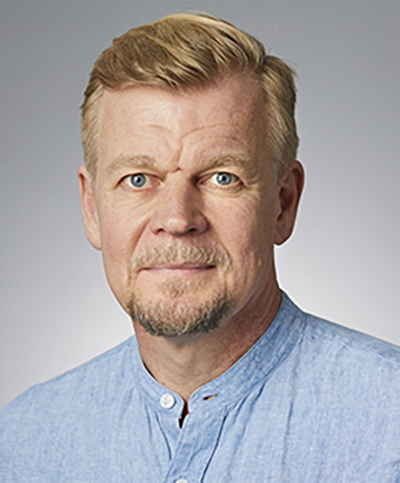Investment in sustainable financial markets led by KTH

The Sustainable Finance Lab consortium has been awarded financing of 47 million Swedish crowns (€4.7 million) over five years from Vinnova, with the option of a further five-year extension. Led by KTH, the Sustainable Finance Lab is a consortium consisting of six universities and research institutes, in which sustainable development researchers aim to create a world- leading centre of excellence for sustainable financial markets.

“This means incredibly much for KTH, Sweden and the world. It also reflects the growing importance of technology and engineering within finance,” says Kent Eriksson , Professor at the Department of Real Estate and Construction Management at KTH and Director of the Sustainable Finance Lab.
The initiative aims to lead to greater financial, social and environmentally sustainable development, in Sweden and globally. To achieve this, the Sustainable Finance Lab will focus on reformulating the concept of risk, sustainable development standards and policies along with transformation, technology and innovation.
When it comes to the concept of risk, the Sustainable Finance Lab points to the environmental and societal changes that the world is undergoing. One example it cites is that, according to the G20 Financial Stability Board, environmental and societal disruptions due to climate changes will probably pose a greater threat to the financial market than the causes of the financial crash in 2008.
Historically speaking, every financial crisis has been linked to the real estate sector, due to speculation in real estate. Eriksson explains that in recent times, central banks around the world have started to take a closer look at how sustainable development affects financial stability.
Financial market threatened by pandemic
“The banks have started a global network called the Network for Greening the Financial System (NGFS). So far, they have only looked at climate change effects that will suddenly lead to far more natural catastrophes, such as fires and flooding, which could then destroy property values which can lead to instability on the financial market,” Eriksson says.
However, there are other aspects when it comes to sustainable development, Eriksson says, citing the COVID-19 pandemic as one example. However tragic this is proving, it is also an example of what can happen with our real estate, he argues. If shopping centres fail and office blocks and other large properties stand empty, that leads to major losses for credit providers. Then the banks will suddenly have problems.
“Real estate makes up 60 percent of banks’ loans portfolios. If the interest on these loans is not paid, there will be another financial crash,” Eriksson says.
The aim is for innovative challengers to emerge
One aim of the Sustainable Finance Lab is to show how financial systems can be better equipped and be made more resilient to this type of threat. Eriksson says that a key role is played by start-up companies whichchallenge established companies with disruptive innovations.
“Naturally we should develop a general understanding of and parameters for how we should address these kinds of issues. However, part of this initiative is about encouraging the emergence of new companies, helping established companies adapt and supporting them in this,” he says.
“Our dream would be to produce a disruptive enterprise that becomes the global leader,” Eriksson says. “And why shouldn’t this be able to come from Sweden? Sweden has one of the most innovative environments in the world today, and companies such as IKEA have emerged from here before.”
Håkan Soold